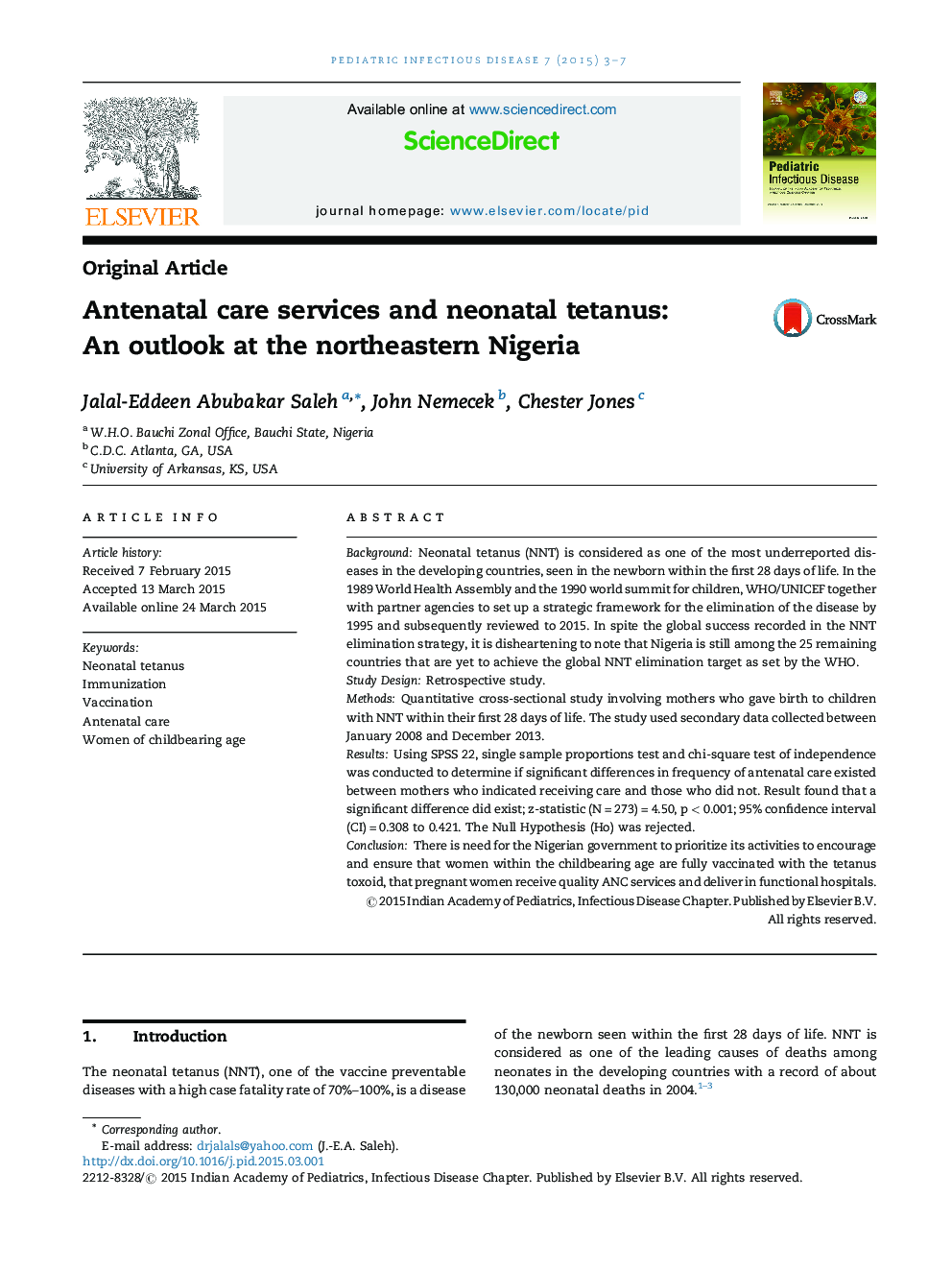| Article ID | Journal | Published Year | Pages | File Type |
|---|---|---|---|---|
| 3382360 | Pediatric Infectious Disease | 2015 | 5 Pages |
BackgroundNeonatal tetanus (NNT) is considered as one of the most underreported diseases in the developing countries, seen in the newborn within the first 28 days of life. In the 1989 World Health Assembly and the 1990 world summit for children, WHO/UNICEF together with partner agencies to set up a strategic framework for the elimination of the disease by 1995 and subsequently reviewed to 2015. In spite the global success recorded in the NNT elimination strategy, it is disheartening to note that Nigeria is still among the 25 remaining countries that are yet to achieve the global NNT elimination target as set by the WHO.Study DesignRetrospective study.MethodsQuantitative cross-sectional study involving mothers who gave birth to children with NNT within their first 28 days of life. The study used secondary data collected between January 2008 and December 2013.ResultsUsing SPSS 22, single sample proportions test and chi-square test of independence was conducted to determine if significant differences in frequency of antenatal care existed between mothers who indicated receiving care and those who did not. Result found that a significant difference did exist; z-statistic (N = 273) = 4.50, p < 0.001; 95% confidence interval (CI) = 0.308 to 0.421. The Null Hypothesis (Ho) was rejected.ConclusionThere is need for the Nigerian government to prioritize its activities to encourage and ensure that women within the childbearing age are fully vaccinated with the tetanus toxoid, that pregnant women receive quality ANC services and deliver in functional hospitals.
